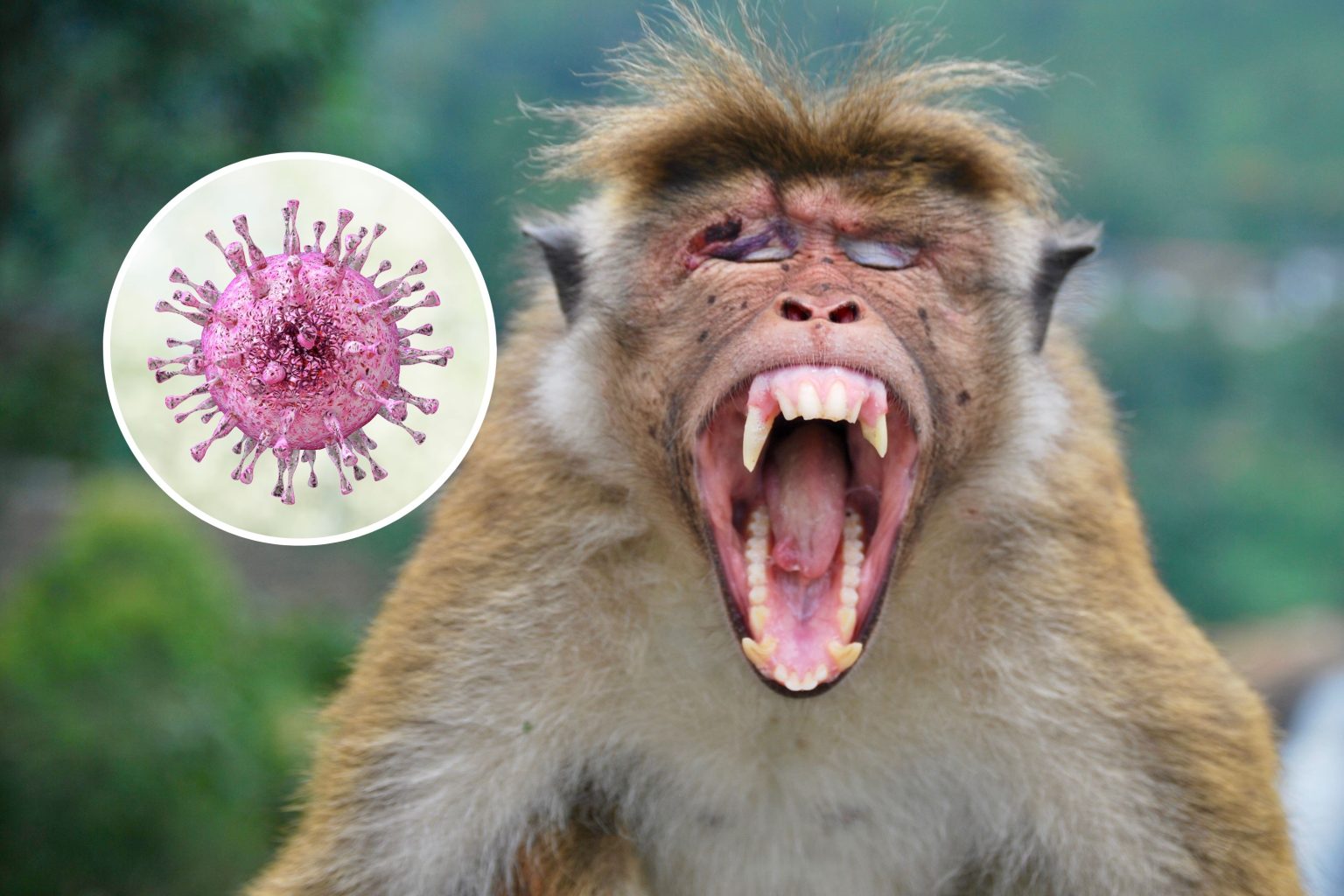A 37-year-old man in Hong Kong is in critical condition after being bitten by wild monkeys in Kam Shan Country Park and contracting a rare but potentially lethal virus known as B virus, Monkey B virus, or Herpesvirus simiae. This is the first recorded case of the virus in Hong Kong, although it has been seen in the U.S., Canada, and China. The virus is commonly found in the saliva, urine, and feces of macaques and is transmitted to humans through bites or scratches from infected monkeys, as well as exposure to contaminated materials. Symptoms of B virus infection in humans include fever, headache, muscle aches, fatigue, and blisters at the site of exposure, with severe cases potentially leading to neurological symptoms such as encephalitis, which can be fatal if not treated promptly.
According to the Centers for Disease Control and Prevention (CDC), there have been 50 reported cases of B virus infection in humans between 1932 and 2019, with 21 deaths. While human-to-human transmission of Monkey B virus is extremely rare, there is only one known case of the virus being passed from person to person. Treatment for the virus in humans typically involves supportive care to manage symptoms, along with antiviral medications to reduce viral replication and alleviate illness severity. The Centre for Health Protection (CHP) in Hong Kong has advised the public to stay away from wild monkeys, avoid touching or feeding them, and seek medical attention immediately if bitten by a monkey.
Symptoms of B virus infection in humans can initially present as flu-like symptoms that may progress to infection of the central nervous system. In severe cases, the virus can lead to neurological symptoms such as encephalitis, which can be fatal if not treated promptly. It can take between a day and three weeks for initial symptoms to progress to serious complications such as breathing problems and death. The infected man in Hong Kong remains in the Intensive Care Unit at Yan Chai Hospital as of April 3 and is still in critical condition. The CHP continues to monitor the situation and provide updates on the man’s condition.
The CHP has urged the public to take precautions when encountering wild monkeys, including staying away from them, refraining from touching or feeding them, and seeking medical attention immediately if bitten. The agency also recommends washing any wounds caused by monkeys with running water and seeking medical attention as a precaution. The B virus infection is a serious and potentially life-threatening condition that requires prompt treatment and careful management of symptoms. The man in Hong Kong serves as a reminder of the risks involved in interacting with wild animals and the importance of following safety precautions to prevent infection and illness. Newsweek is committed to covering stories related to science, including updates on the man’s condition and information about the B virus. Readers are encouraged to reach out with any tips or questions related to this topic.


